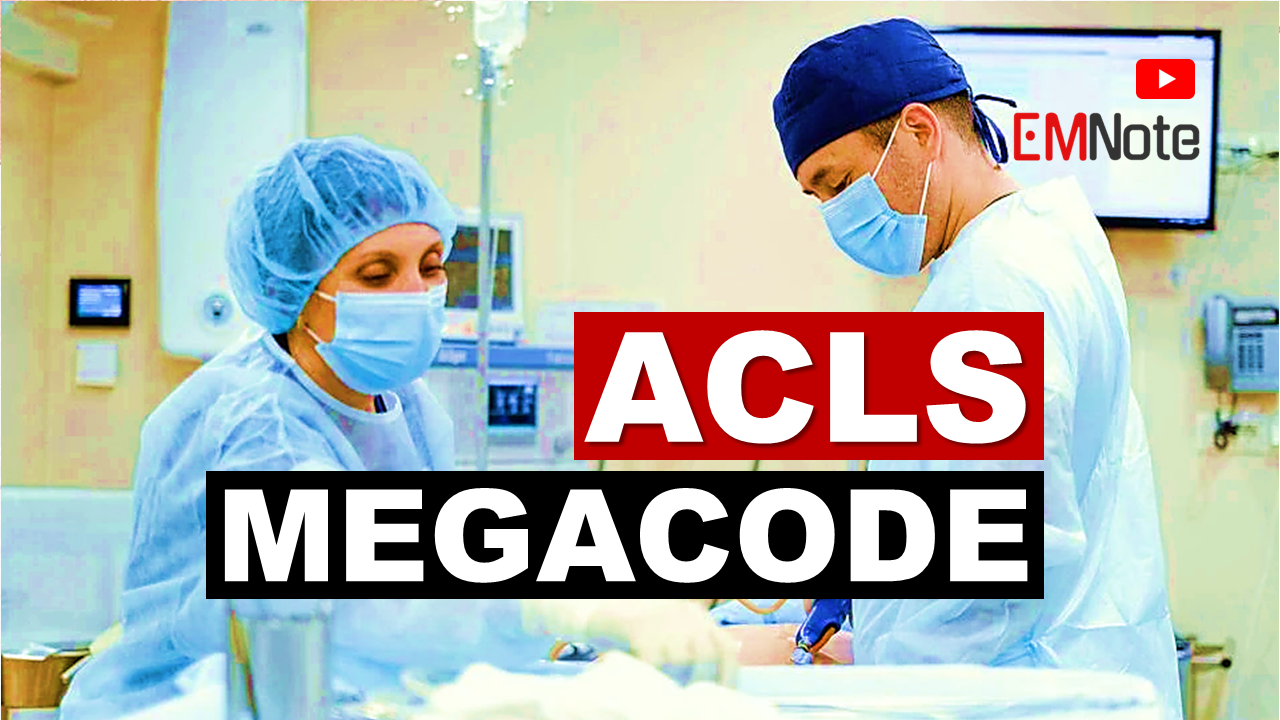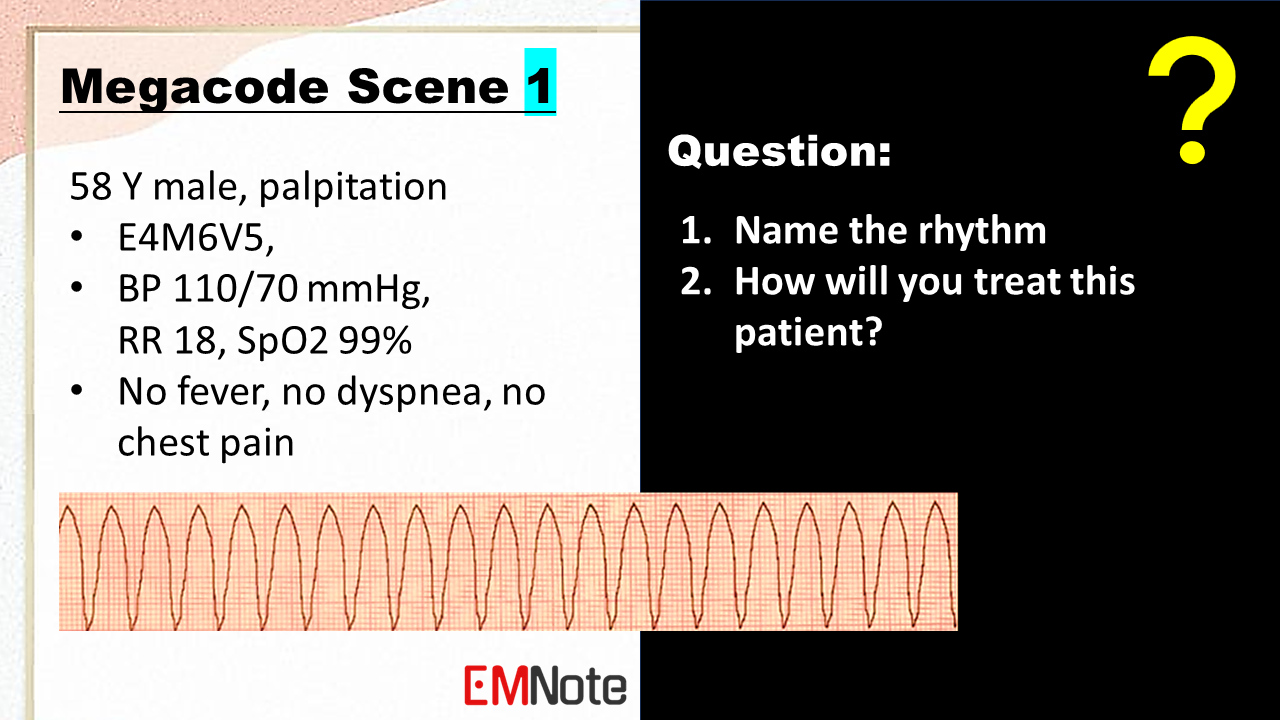|
ACLS Megacode:
Initial Assessment: - Check for responsiveness, breathing, and pulse. - If unresponsive, call for help and initiate CPR. - Attach defibrillator pads and monitor. CPR: - Perform chest compressions at a rate of 100-120/min, allowing full chest recoil. - Provide rescue breaths at a ratio of 30:2. - Continue CPR until ROSC is achieved or until medical help arrives. Defibrillation: - If VF/VT is present, deliver a defibrillation shock of 360 joules biphasic or 360 joules monophasic. - If unsuccessful, increase the energy level to 400 joules biphasic or 400 joules monophasic and repeat. - Continue defibrillation attempts until ROSC is achieved or until medical help arrives. Emergency Medications: - Epinephrine: 1 mg IV/IO every 3-5 minutes. - Vasopressin: 40 units IV/IO every 3-5 minutes (if refractory to epinephrine). - Amiodarone: 300 mg IV/IO over 20 minutes (if refractory to defibrillation). - Lidocaine: 1 mg/kg IV/IO (if refractory to defibrillation). - Sodium bicarbonate: 1 mEq/kg IV/IO (if metabolic acidosis). - Calcium chloride: 10 mg/kg IV/IO (if hyperkalemia or calcium channel blocker overdose). Advanced Airway Management: - Intubate the patient if CPR is ineffective or if the patient is unable to maintain a patent airway. - Consider cricothyrotomy if intubation is unsuccessful. Post-ROSC Care: - Monitor vital signs closely. - Provide supportive care, including oxygen therapy, fluid resuscitation, and antibiotics. - Address any underlying medical conditions that may have contributed to the arrest.
0 Comments
Leave a Reply. |

Author
|
Proudly powered by Weebly

